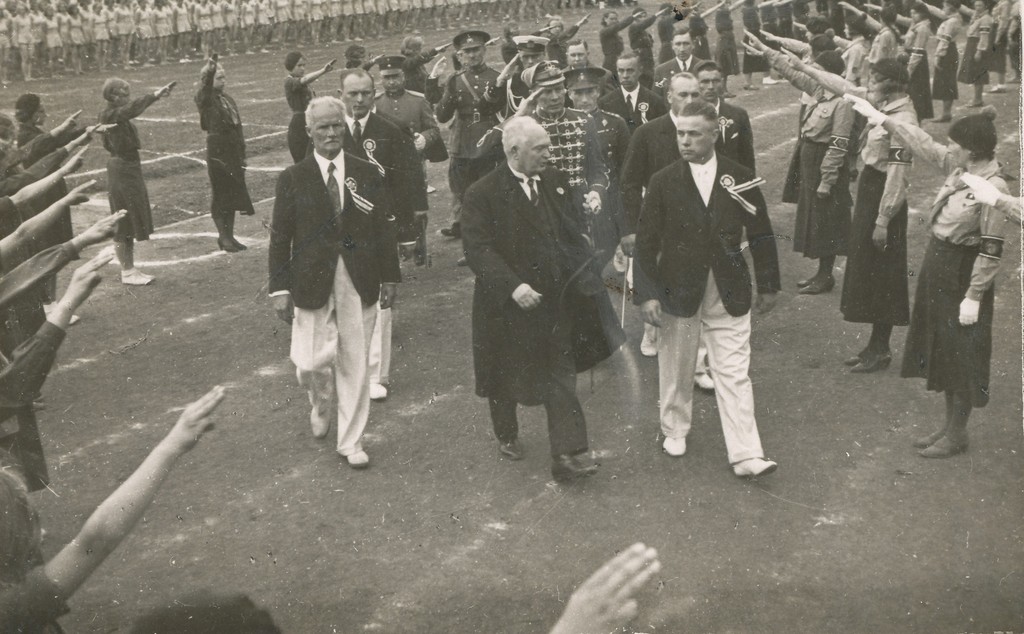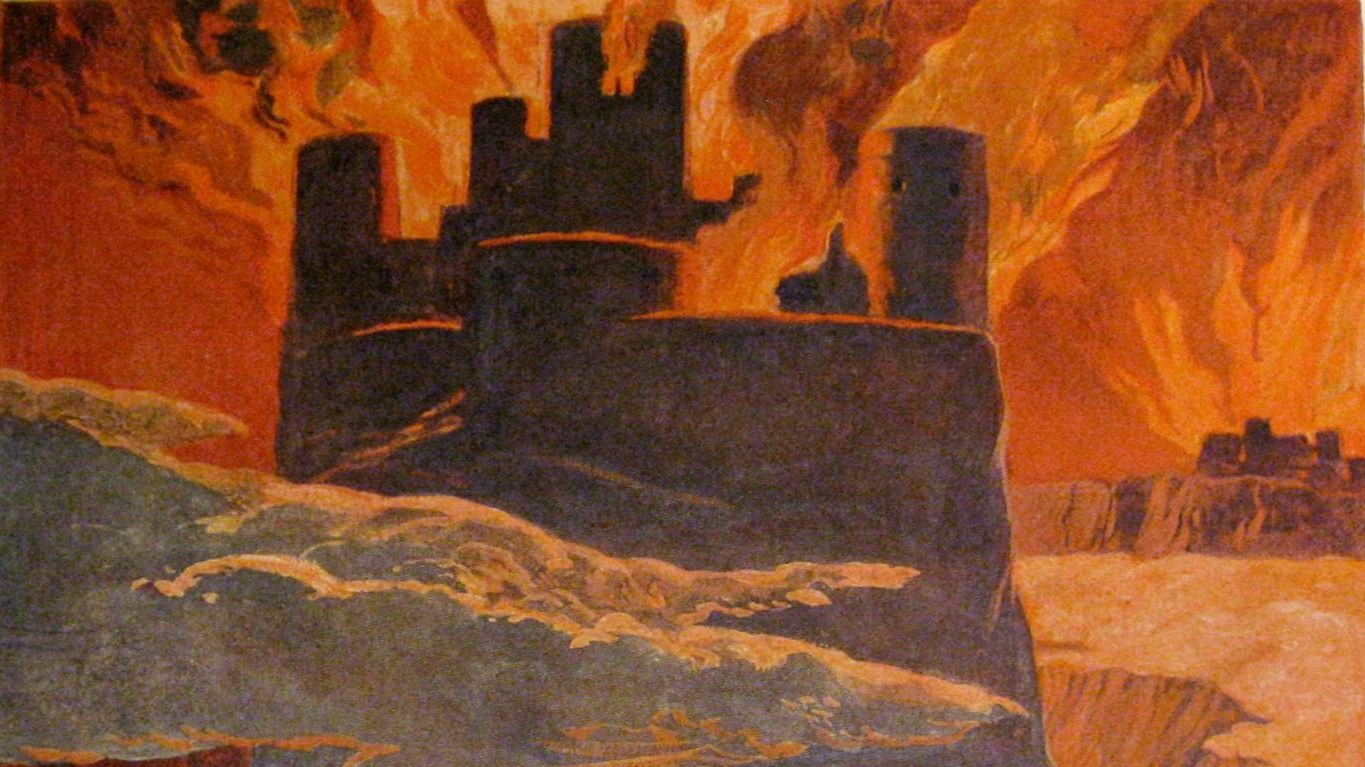The myth was supposed to awaken the uniform unquestioning and drivening desire of the masses to act (including violently) as directed by the leaders.
Editor’s note: The idea of equality of all humans was one of the three fundamental ideas which helped to put an end to the feudalistic type of rule; it was a part of the motto of the French Revolution (“Liberty, equality, fraternity”). And it seems to be no coincidence that it was France that gave birth to the first proto-fascist party a hundred years later. The goal of French fascists was to restore medieval, feudal monarchy in the country and divide the society back into estates. This was impossible to do without canceling the fundamental equality of people declared by the French Revolution. Directly restoring monarchy was impossible in the 20th century. But this wasn’t necessary: a neo-feudalism could be created. Thus fascism was born.
Several clear conceptual conclusions regarding the possibilities of “stopping the Red forces” follow from the works on elite theory which we have discussed earlier (and which were very attentively “digested” by imperialist ideologists).
The “elevating” collectivism of equality and fraternity of rational masses which are aware of their interest and goals had to be gradually displaced and replaced with the “lowering”, regressive collectivism of an unquestioning irrational crowd (as described in the works of Michels and Le Bon).
The next goal was to become a full-fledged counter-elite and, with the help of a crowd already shaped in the right manner, seize the power (as described in the works of Mosca and Pareto).
Then they needed to use the power and the crowd not only to crush the Red forces (communists and socialists – Editor), but maintain this crowd in the state of “agreeing obedience”.
But how could that be achieved?
A special kind of myth (as described in Sorel’s works) was supposed to be the main technological mechanism to achieve it. To achieve such unity of the irrational (blind faith in the myth as it is seen in the leader) and rational (trust in the propagandist argumentation of the leader), with the help of which the leaders would create an integral image of the reality for the masses, as well as point at the main enemies in that reality. Such myth was supposed to awaken a uniform unquestioning and driven desire to act (including violently) as directed by the leaders.
A powerful informational-propagandist machine had to be created and used to implement the myth in the masses and support it in order to preserve the qualities of the crowd in masses.
Both those who were striving to stop the Red forces and those who fought for the political victory of the Communists understood this. Lenin, for example (who had attentively read Pareto, Le Bon and Sorel) wrote in a small article “Imperialism and the Split in Socialism”: “…nothing can be done without the masses. And in this era of printing and parliamentarism it is impossible to gain the following of the masses without a widely ramified, systematically managed, well-equipped system of flattery, lies, fraud, juggling with fashionable and popular catchwords, and promising all manner of reforms and blessings to the workers—as long as they renounce the revolutionary struggle for the overthrow of bourgeoisie.”
The ideological precedence in creating concepts of proto-fascism, apparently, belongs to France. Ideas of far-right aristocratic revenge started forming in France from the 1870s, after the defeat France suffered in the war against Prussia. Numerous right-wing groups (leagues) of noblemen, officers, intelligentsia were appearing and gaining political influence in France at that time. A radical monarchic part of which has united in the organization “Action Francaise” (“French Action”).
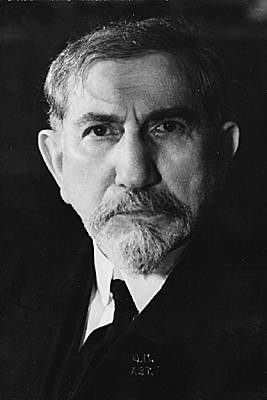
So-called integral nationalism became the ideological-political platform of “Action Francaise”. The “integral myth” which “Action Francaise” was building appealed to the France of Late Middle Ages and the “great kings”. It assumed a strict social hierarchy and “interclass peace” which were secured by estate-corporatist organization of the socio-political and economic life in the country governed by a monarch.
The leader of “Action Francaise”, Charles Maurras, clearly wrote that the restoration of monarchy in France is possible with the aid of “a new general Monck” (in 1660 Monck, after Cromwell’s death, has secured the restoration the rule of the Stuart dynasty in England). At the same time, “Action Francaise” used the squads of its youth wing, the so-called ‘street-hawkers of the king’ (Camelots du Roi, the prototype of the future fascist stormtroopers in Italy, Germany, Spain and so on), in street violence against their Red opponents.
The ideas and political practice of “Action Francaise” had a significant impact on development of fascist organizations in other European countries (in Belgium, Romania, Spain and so on). The head of Belgian fascists-rexists Leon Degrelle, an elite Waffen-SS Nazi general and Hitler’s favorite, later described Maurras in his book as the “intellectual father of all European fascisms“.
Significantly enough, followers of Sorel were involved with “Action Francaise”. For example, the syndicalist George Valois, who called himself a “loyal spiritual son” of Sorel, founded his own political group of syndicalists and radical nationalists in 1912. Later he emphasized that “Faisceau”, the French political organization which he founded in 1925 and which was first to openly declare itself fascist, originated from this group.
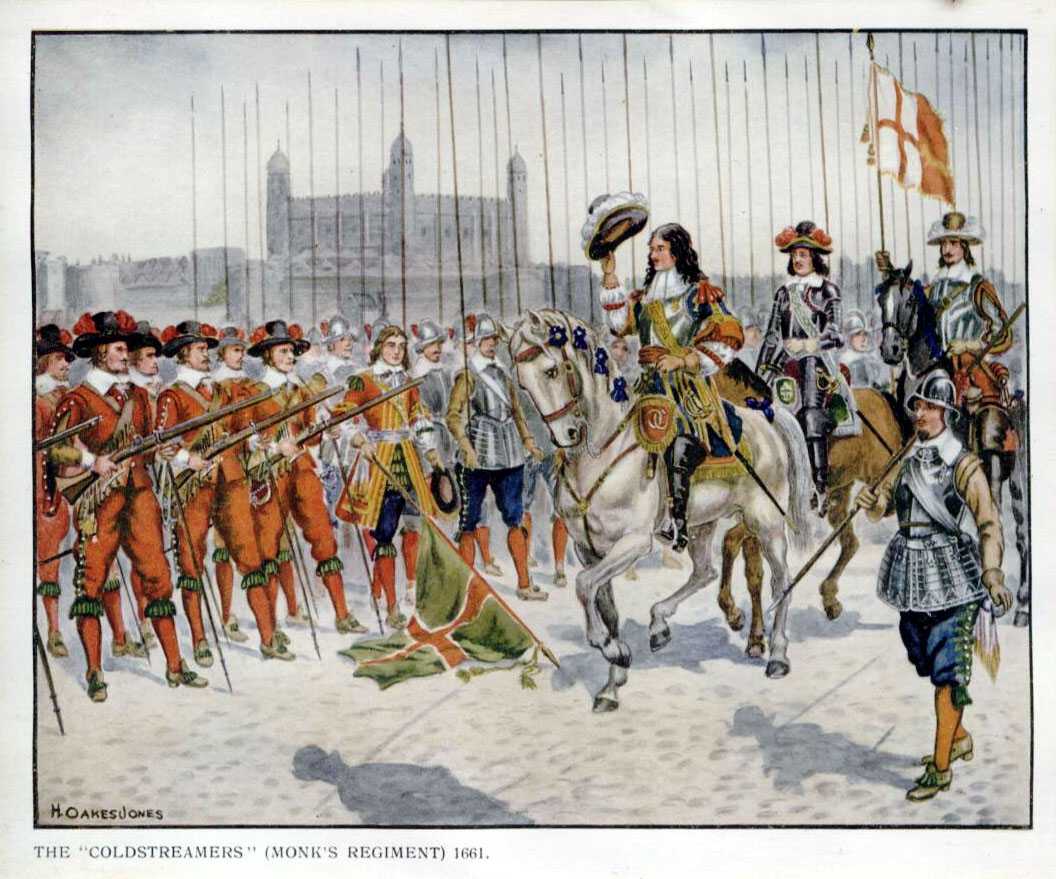
Radical nationalists and their leader Maurice Barres were another wing of French “protofascism”. They, unlike
“Action Francaise”, were building their political myth based on “inter-state” Social Darwinism and ethnic racism. And often used anti-capitalist rhetoric and Socialist mottoes, urging to secure the peace between different classes by uniting all classes under the banner of “national patriotism”.
One of the most influential “leagues” of nationalists practicing militant racism in the spirit of Gobineau and H. Chamberlain directly called itself “Antisemitic League” and “National-Socialists”. Later Barres became a big fan of Italian fascism and Mussolini personally. He wrote that “it is fascism that unites… entrepreneurs, servants, specialists, workers… in order to reconcile them“.
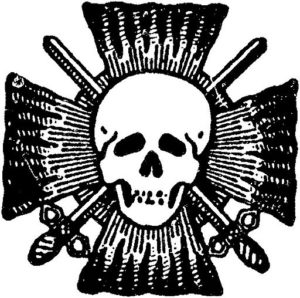
“Action Francaise” and Barress’ nationalists played a big role in creating “Cross of Fire” (“Croix-de-Feu”), a protofascist organization which united certain participants of World War I in 1927 in France. “Action Francaise” offshoots and Barress’ nationalists became a significant part of the “Vichy regime” — the collaborationist pro-Hitler administration of France — after France was occupied by Germany during World War II,
Nevertheless, the first experience of coming to power fascism received not in France, but in the “young empire” — in Italy.
The mass euphoria from first imperialistic successes in Eritrea and Somalia in 1885-1889 in Italy was in some sense crossed out in 1896, after Italy suffered a defeat in Ethiopia by the hand of Emperor Menelik’s army. Not only did the system of elite schisms in the country escalate (monarchists, liberals, clericals, the bourgeoisie of the industrial North and latifundist landowners of the South). The socialist grassroots movements of urban proletariat and peasants have also sharply came into motion — from parties and leagues of socialists and anarcho-syndicalists to peasant Catholic and secular “syndicates” and “labor associations”.
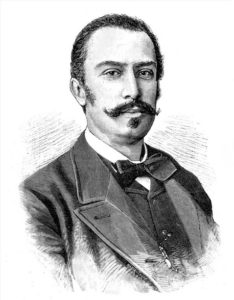
In these circumstances the Prime Minister of Italy, a prominent liberal politician Giovanni Giolitti, has proclaimed “a new policy of state consolidation” through reforms of remuneration system, decrease of working hours, securing trade union liberties and customs protectionism. In essence, Giolitti in his policy of integration of urban and rural proletariat in the liberal bourgeois system through an alliance of liberals with social-reformists followed in the steps of his German predecessor Bismarck with his “Prussian socialism“.
However Giolitti’s approach based on compromising with working masses and decreasing the exploitation norms, as well as on moderation in regards of imperialistic plans, was absolutely unacceptable for the elite alliance of the influential bourgeoisie and latifundists, because it decreased their super-profits and didn’t leave a chance for rapid foreign expansion. At the same time, this policy caused the decrease in popularity of social-reformists of the Socialist Party who were accused of class treason by the masses.
The influence of right-wing nationalists in Italy was on a sharp rise after the defeat of socialists in 1912 elections and the fall of liberal-socialist government. Nationalists were prepared to solve the domestic and foreign political problems by making a bet on violence. The nationalist propaganda of violence and direct action attracted a significant number of Italian syndicalists and anarcho-syndicalists – this propaganda matched well with their idol’s, George Sorel’s, preaching on violence.
The leader of nationalists Enrico Corradini was persistently (and for a while) propagating the “international Social Darwinism” as a basis for imperialistic expansion. Corradini regularly referred to the greatness of Ancient Rome which the new Italy was supposed to restore. At the same time he presented the myth of the inevitability of the struggle between old and feeble nations (“capitalistic and plutocratic”), and young and energetic nations (“proletarian”); the struggle in which mutual national interests were supposed to unite all Italians.
Corradini founded the Italian Nationalist Association (INA) in 1910 and declared on INA’s first congress: “Just like socialism explained the significance of the class struggle to the proletariat, we must explain the significance of international struggle to Italy. But international struggle is war, isn’t it? Well, let there be war, and let nationalism awaken the desire for a victorious war in Italy.”
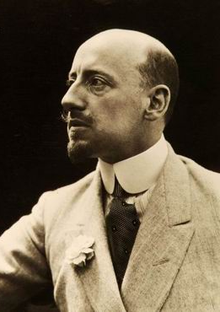
Another type of fascist nationalist mythology was presented to the society by a notable and productive writer, journalist and orator Gabriele D’Annunzio. He, just like Corradini, constantly appealed to the grandeur of Ancient Rome in his books, articles and public speeches, and to Italy’s obligation to restore this grandeur through colonial conquest. However, unlike nationalists, the main point he appealed to was not Rome as a world empire (this was an assumed consequence of grandeur), but the image of a Roman patrician as a superhuman in the spirit of Nietzsche. Meaning, an aristocratic hero-leader who despises the ethical conventionalities and restrictions of the society, who knows no fear or doubts, and pursues his goals despite the hardships and fate.
As contemporaries testify, D’Annunzio was a master at using recommendations from Le Bon‘s “Psychology of Crowds” in his public speeches: “…Whatever be the ideas suggested to crowds they can only exercise effective influence on condition that they assume a very absolute, uncompromising, and simple shape. They present themselves then in the guise of images, and are only accessible to the masses under this form… Crowds exhibit a docile respect for force, and are but slightly impressed by kindness, which for them is scarcely other than a form of weakness…The type of hero dear to crowds will always have the semblance of a Caesar. His insignia attracts them, his authority overawes them, and his sword instills them with fear.”
In his novels, essays, speeches D’Annunzio has also seems to have associated himself with Nietzsche’s superhuman: “…The new Roman Caesar, predestined by nature to domination, will come and wipe out or overturn all the values admitted for too long by all kinds of doctrines. He will be capable of constructing and casting into the future that ideal bridge thanks to which the privileged species could finally cross over the precipice that apparently still separates them from the ardently desired domination.”
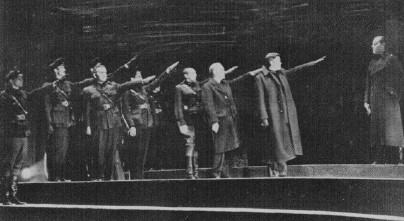
We need to note that on the first stage of formation of Italian protofascism D’Annunzio’s popularity was even higher than that of Mussolini’s. Mussolini managed to gradually move this too obvious competitor for the leader’s role to minor political roles only by accumulating power.
Many workers of “new culture” (first and foremost – futurists) participated in constructing the Italian fascist myth. In particular, one of the most prominent men of Italian futurism, poet Filippo Marinetti, was a passionate admirer of Georges Sorel, and glorified “creative violence”. He was convinced that the dynamic of progress is unstoppable, and that physically strong, militant new man and new mighty technology play a special part in it. Arguing against the primary fascist “ancient Roman” myth Marinetti stated: “We want to glorify war — the only hygiene of the world… Let the pestilent reminder of Roman glory be replaced by a hundred times greater glory of Italy.”
Another prominent figure of Italian protofascism – philosopher Giovanni Gentile. He started developing the Neo-Hegelianist philosophic theory of “actual idealism” before World War I (his work “Theory of Mind as Pure Act” was published in 1916). According to Gentile, Hegel’s World Spirit, just like the human spirit, is a dialectic of inseparable intellect and will, perceiving mind and action.
The human mind, according to Gentile, combined with will, allows the person to rise to the level of historic deeds, renounce all established laws, and freely create his own law and his own world. At the same time, Gentile thought that his actual dialectics most fully manifests itself in the metaphysics and philosophy of the state. And – as if developing Hegel’s though – made the conclusion that a totalitarian history-making person most fully fulfills his purpose in a totalitarian state.
After fascists rose to power, Gentile recognized them as a realization of his philosophical concept. He became the Minister of Education in the first fascist government in 1923. In 1925 he published his “Manifesto of Fascist Intellectuals to the Intellectuals of Other Nations”; in 1929 — the work “Philosophic Basis of Fascism” in which he declared fascism the new “political faith…” able to create a new “‘ethical’ state“.
Benito Mussolini became the leader and personification of Italian fascism which was being born in this conceptual-political environment.
Source (for copy): https://eu.eot.su/?p=3025
This is the translation of the third article (first published in “Essence of Time” newspaper issue 55 on November 20, 2013) by Yury Byaly of a series on essence, birth and rise of fascism. Part 1: Marxism, imperialism and the justification of inequality; Part 2: Theory of elites and inequality — from concepts to ideology
We encourage republishing of our translations and articles, but ONLY with mentioning the original article page at eu.eot.su (link above).

